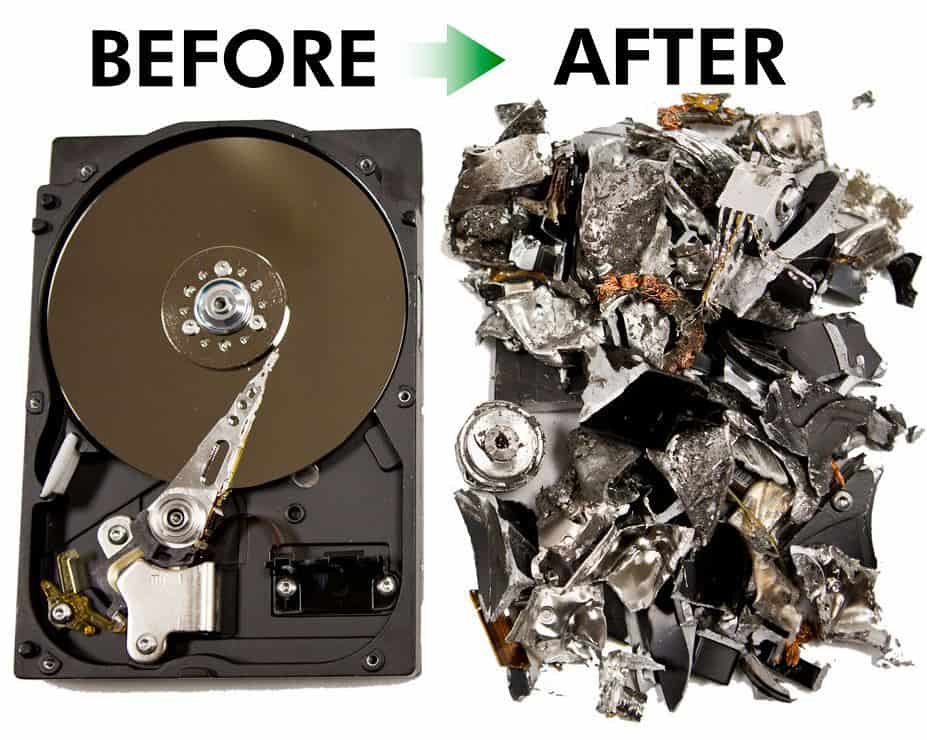Understanding the Role of Data Destruction in Strengthening Cyber Security Defenses
Understanding the Role of Data Destruction in Strengthening Cyber Security Defenses
Blog Article
The Crucial Nature of Information Devastation in Upholding Computer Protection Solutions and Protecting Against Unauthorized Accessibility
In an age where information violations and identity theft are progressively prevalent, the relevance of reliable data devastation can not be overemphasized. Different approaches, from information cleaning to physical damage, serve as critical safeguards against unapproved accessibility.
Importance of Data Damage
In a progressively digital world, the relevance of data devastation can not be overstated. As companies collect large amounts of delicate info, the prospective repercussions of failing to effectively get rid of and manage of that data become increasingly extreme. Data breaches, identification theft, and company espionage pose considerable dangers, highlighting the requirement of reliable data destruction techniques.

In addition, as modern technology advances, so as well do the techniques by which malicious stars seek to make use of delicate info. Organizations should remain positive and cautious in their information destruction techniques to secure versus these advancing threats. By focusing on data destruction, business not only safeguard their possessions however additionally foster trust among customers and stakeholders, demonstrating a dedication to liable data monitoring and protection methods.
Techniques of Effective Information Destruction
To make certain the permanent and total devastation of delicate data, companies can employ a range of reliable methods customized to their specific needs. Among the most typical methods is data wiping, which entails making use of specialized software application to overwrite existing information several times, making healing basically impossible. This is specifically helpful for hard disks and solid-state drives, where conventional deletion methods are insufficient.
An additional effective technique is degaussing, which makes use of strong electromagnetic fields to interrupt the magnetic domain names on storage space media, providing the data irretrievable. This method is specifically matched for magnetic storage space devices, such as disk drive and hard drives.
Physical devastation is likewise a practical choice, including the shredding, crushing, or incineration of storage tools. This approach warranties that data can not be recovered, making it ideal for companies taking care of extremely sensitive info.

Conformity With Information Defense Laws
Organizations should not only concentrate on reliable data devastation approaches yet likewise make certain compliance with information security policies that govern just how delicate info is taken care of and taken care of. Following these regulations is crucial for preserving and guarding personal data consumer depend on. Rules such as the General Data Protection Regulation (GDPR) in the European Union and the Wellness Insurance Policy Mobility and Responsibility Act (HIPAA) in the United States enforce rigorous guidelines on information management, which include demands for the protected disposal of delicate information.
To achieve conformity, companies should apply thorough data destruction plans that line up with these legal frameworks. This consists of identifying information that requires destruction, developing protocols for protected methodsâEUR" such as shredding physical media or using software program that fulfills sector requirements for data wipingâEUR" and preserving comprehensive documents of destruction tasks. Routine audits needs to be performed to ensure adherence to these plans and to identify any type of potential areas for improvement.
Failure to adhere to data defense policies can bring about substantial lawful implications, including substantial fines and damages to an organization's reputation. Consequently, incorporating conformity right into information damage techniques is not just a lawful obligation yet additionally a crucial part of a robust information safety browse around this web-site approach.
Repercussions of Poor Data Handling
Poor data handling can result in serious consequences that extend beyond instant operational obstacles. Organizations might encounter substantial economic losses because of information violations, which usually cause costly removal initiatives, legal costs, and governing penalties. These financial effects can impede and stress sources development, ultimately impacting a company's lower line.
Furthermore, poor information handling can badly damage an organization's credibility. Clients, stakeholders, and partners might shed trust fund in an entity that stops working to protect sensitive information, leading to reduced customer commitment and potential loss of business possibilities. This erosion of count on can take years to rebuild, if it can be brought back at all.
In addition, companies can encounter legal implications occurring from non-compliance with information security policies. Such violations might result in fines and investigations, intensifying the economic burden and more staining the organization's photo.
In the world of cybersecurity, inadequate data management methods can create vulnerabilities that make systems more susceptible to unapproved gain access to and cyberattacks. Eventually, these effects emphasize the crucial importance of implementing durable data taking care of procedures to secure sensitive info and preserve organizational stability.
Ideal Practices for Secure Data Disposal


First of all, information need to be classified according to its sensitivity. Sensitive details needs extra rigorous disposal approaches, such as shredding physical files and using advanced software for electronic information wiping. Utilizing certified information damage solutions guarantees conformity with sector laws and requirements.
Second of all, companies should execute an information disposal plan that mandates routine audits. This policy needs to describe the treatments for information retention and devastation, ensuring that out-of-date data is disposed of promptly and securely. Training workers on these procedures is important to fostering a society of safety understanding.
Last but not least, maintaining in-depth records of disposed data enhances accountability and supplies a clear audit path. This paperwork must include the kind of information ruined, the approach used, and the date of disposal.
Final Thought
To conclude, the imperative of effective data devastation is evident in its click for source role in boosting computer safety and security solutions and minimizing unapproved access risks. Taking on durable techniques such as data cleaning, degaussing, and physical damage, together with conformity with guidelines like GDPR and HIPAA, is essential for guarding delicate information. Disregarding proper information disposal practices can bring about extreme effects, consisting of data breaches and lawful effects. Implementing finest practices in safe Full Article and secure information disposal eventually fortifies organizational honesty and client count on.
In an age where data violations and identity theft are significantly widespread, the significance of reliable data damage can not be overemphasized. data destruction. Data violations, identification theft, and corporate espionage present considerable risks, highlighting the necessity of effective data devastation practices
Conformity with laws such as GDPR and HIPAA mandates that organizations apply rigid data protection measures, consisting of the safe and secure destruction of information at the end of its lifecycle.
By focusing on information destruction, firms not only safeguard their properties but also foster count on amongst customers and stakeholders, demonstrating a commitment to liable data monitoring and safety and security methods.
Organizations must not only concentrate on effective information devastation methods yet likewise ensure conformity with information defense policies that regulate exactly how sensitive details is dealt with and disposed of.
Report this page